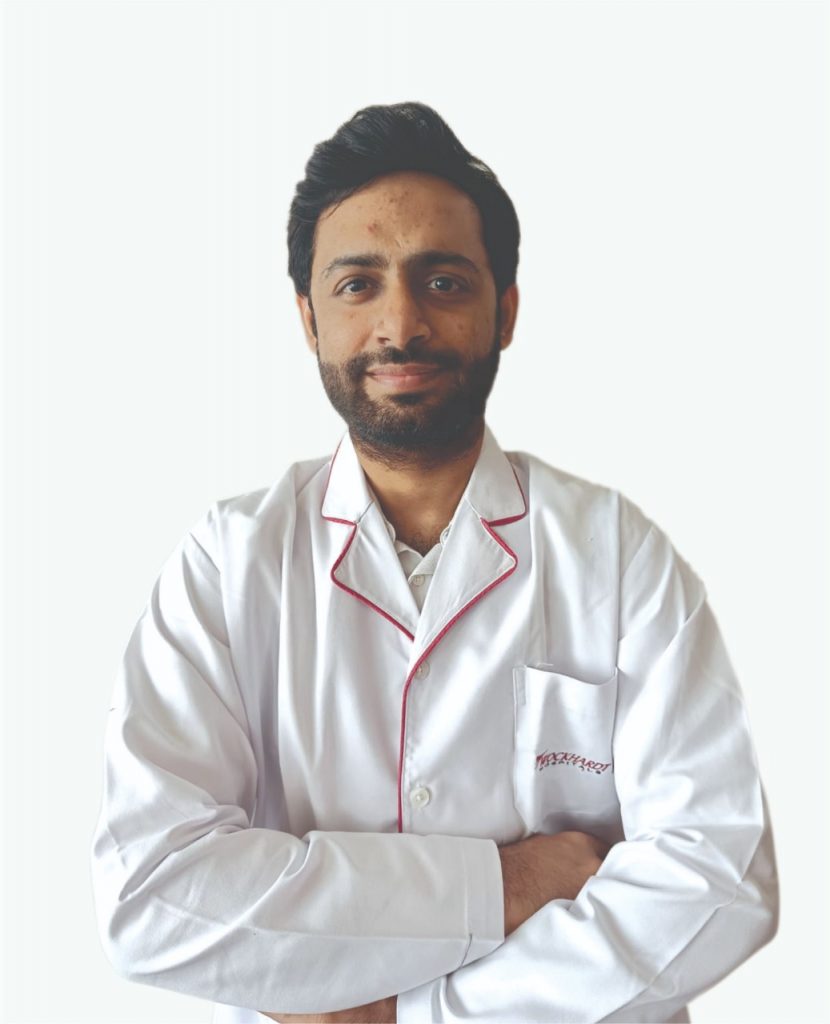Home » Medical Procedure » Radiology
Radiation
Therapy and
Treatment
Hospital in India

Why Choose Wockhardt Hospitals
For Radiology Services?
Wockhardt Hospitals is one such place where we prioritize the patient above all else. We not only understand that each patient is unique, but also that every ailment may present differently. That’s why we place significant emphasis on our diagnostic team in the hospital. Radiology plays a vital role, and our experienced radiologists have an eye for detail. Equipped with advanced technology and years of practical knowledge, the radiology department at Wockhardt provides some of the best expertise for different conditions.
Renowned Radiologists
at Wockhardt Hospitals
- Mumbai Central
- Mira Road
- Nagpur
- Rajkot
What is Radiology?
When we visit the doctor, many tests are performed. One of these tests involves visualizing the internal hard and soft structures. One of the methods used for visualization is radiographs. Radiology is the branch of medicine that deals with projecting and interpreting the radiographs. Radiology includes various methods such as X-rays, MRI, CT, ultrasound scans, etc., which provides a better understanding of the situation.
With a diagnostic team and a radiology team, managing the disease becomes easier, and the root cause of the problem can be understood. Radiology involves not only capturing these images but also interpreting and deciphering each one of them.
What is the importance of
Radiology in Healthcare?
The role of a Radiologist extends beyond mere visualization. It also involves interpreting the image findings, assessing the prognosis of the case, determining the likelihood of success with a specific treatment approach, and more. A radiologist’s evaluation can help clarify patients’ doubts and provide insights into their treatment plan.
With the support of a skilled radiology team, any uncertainties can be clarified, enabling accurate radiology diagnosis and better treatment outcomes. There are several methods available, including X-rays, CT scans, MRI, and ultrasound, that enable us to visualize and diagnose accurately.
Radiology
Related Services
When we say radiologist, the first thing that comes to mind is an X-ray. However, they also perform other diagnostic imaging tests, including:
- Computed Tomography
- Digital Mammography
- Magnetic Resonance Imaging
- Magnetic Resonance Angiography
- X- Ray
- Fluoroscopy
- Ultrasound
- Positron Emission Tomography
- Bone scan, thyroid scan
- Interventional radiography like angiography, radiofrequency ablation, cryoablation, embolization etc.
Tests & Procedures
In Radiology
While there are numerous tests encompassed within the field of radiology, it is worth discussing a few common ones:
- X-rays: Radiography or X-ray is a diagnostic imaging technique that utilizes focused radiation at a specific point. This produces an image that can be captured on a film or, nowadays, on a digital screen. X-rays are particularly effective in visualizing hard tissues such as bone and cartilage.
- CT Scan: Computerized Tomography, also known as CT Scan, is a type of imaging that provides three-dimensional views of structures. It allows for a comprehensive understanding of areas that cannot be visualized through 2D radiographs. CT scans are commonly performed to study tumours and their characteristics.
- MRI: Magnetic Resonance Imaging, or MRI, employs magnetic radiation to produce detailed images. This imaging technique is time-consuming and often accompanied by loud noises from the scanner. MRI provides high-quality three-dimensional images and is commonly used for various diagnostic purposes.
- PET Scan: Positron Emission Tomography, or PET scan, involves injecting a radiotracer into the patient’s body. The scanner then studies the movement of this tracer on a cellular level. PET scans are valuable in examining metabolic and functional changes within the body.
- Ultrasound: Ultrasound, or ultrasonography, employs high-frequency sound waves to generate images. This non-invasive imaging method is particularly useful and safe for examining various organs and tissues, including in pregnant women.
These are just a few examples of the wide range of radiology tests performed by a team of radiologists, aiding in accurate diagnosis. Without the valuable insights provided by these tests, appropriate patient treatment would be significantly challenging.
Types of
Radiological Tests
There are many types of diagnostic radiologic tests available as tools to aid in the diagnosis of a patient’s condition. Here are a few of them that are available at our hospital:

- CT Scanning: Computed axial tomography or CAT scan. All of these terms refer to the same thing, wherein a specially equipped X-ray machine is used to capture 3-D images of the body’s internal structures.
- Fluoroscope: It involves continuous X-ray imaging that helps visualize the movement within a specific body part.
- MRI: Magnetic resonance imaging is a type of imaging technique that utilizes large magnets to capture detailed images of the body’s internal structures.
- Ultrasound: Also known as sonography, this technique utilizes high-frequency sound waves to create images of blood vessels and organs.
- Virtual colonoscopy: This advanced technology employs CT scans to provide both 2D and 3D images of the colon.
How long does it take to recover from
Radiologic Scans?
How long does it take to recover from
Radiologic Scans?
Radiologic scans mostly utilize some form of radiation to create the image. In most cases, patients do not require any recovery period and can go home immediately after a radiology test. They can also resume normal activities after the scan. This applies to most scans, including contrast scans where a special type of radio-opaque fluid may need to be consumed.
We Offer Quality Facilities to Our Patients
Wockhardt Hospitals is a large chain of multispecialty practices that offers treatments in various medical fields. At Wockhardt, we prioritize the treatment of our patients and ensure they receive the best possible care. Our radiology department comprises specialists from across the country who possess expertise in accurate diagnosis and are well-versed in the latest radiology techniques.
Our Advanced Technology for
Radiology Treatment
Some of the top-of-the-line technologies available at Wockhardt Hospitals’ Radiology Department include:
- Digital radiology
- AI-aided X-Rays with interpretation
- Dual energy imaging
- Tomosynthesis
- Computer-aided diagnosis (CAD)
- Digital mobile radiography




















